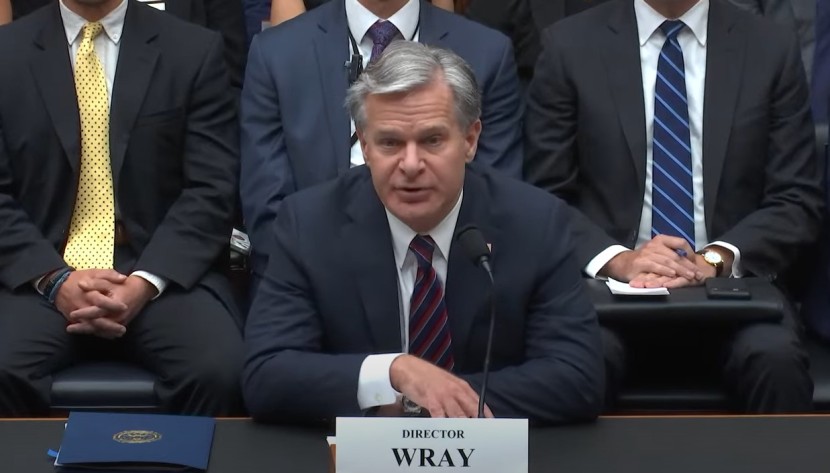
FBI Director Christopher A. Wray announced that he would resign at the end of the Biden administration. This comes as President-elect Donald Trump, who potentially has the authority to fire him, has nominated Kash Patel for the role.
Wray's resignation comes seven years into his 10-year term. Last month, Trump's nomination for the role signaled to Wray that he should either resign or face possible termination.
Wray shared his decision with the FBI workforce during a town hall on Wednesday afternoon, stating that while it was a difficult choice to cut his tenure short, he believed it was the best move for the 35,000-person agency.
"My goal is to keep the focus on our mission — the indispensable work you're doing on behalf of the American people every day. In my view, this is the best way to avoid dragging the Bureau deeper into the fray, while reinforcing the values and principles that are so important to how we do our work," Wray said, according to excerpts released by the FBI.
"It should go without saying, but I'll say it anyway — this is not easy for me," he continued. "I love this place, I love our mission, and I love our people — but my focus is, and always has been, on us and doing what's right for the FBI."
Wray became FBI director in 2017, appointed by President Trump during his first term. This was after Trump fired former director James B. Comey amid the bureau's investigation into possible coordination between Trump associates and Russia to interfere in the 2016 presidential election.
During his tenure, Wray has overseen the bureau at a time of escalating threats. He has frequently warned about the growing danger of cyberattacks from China and has addressed Congress and others regarding domestic threats, including violence targeting public and law enforcement officials, even extending to his own FBI agents.
Trump and his allies harshly criticized Wray and the FBI, particularly after agents executed a court-approved search for classified documents at Mar-a-Lago, Trump's home and private club. Their inflammatory rhetoric led to violent threats against the FBI, with Wray reportedly expressing deep anger about the attacks in conversations with senior law enforcement officials, according to The Washington Post.








